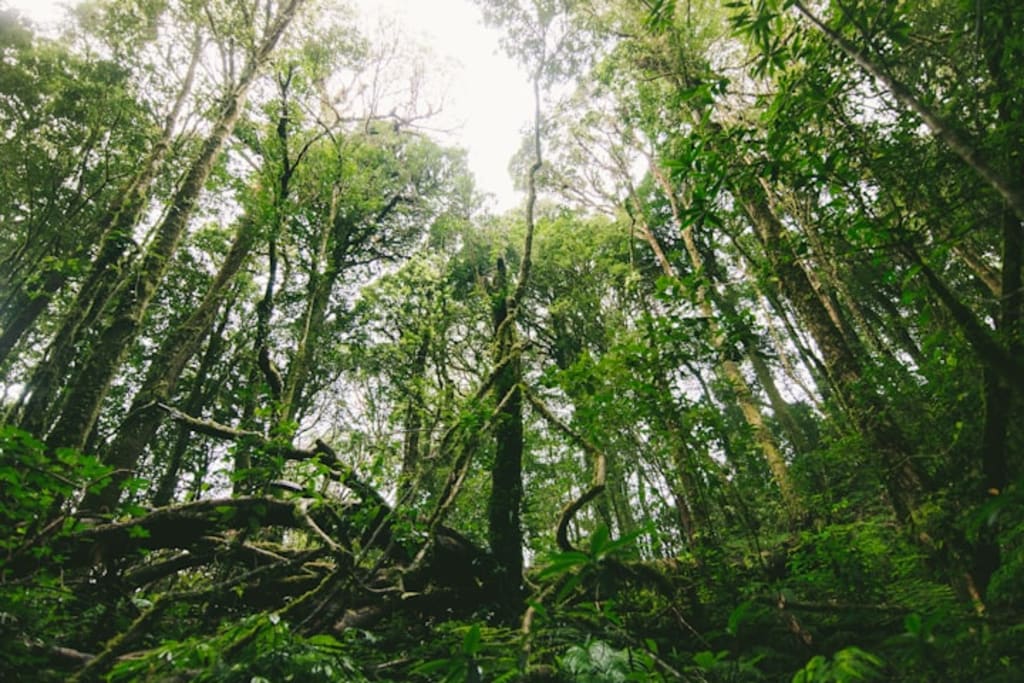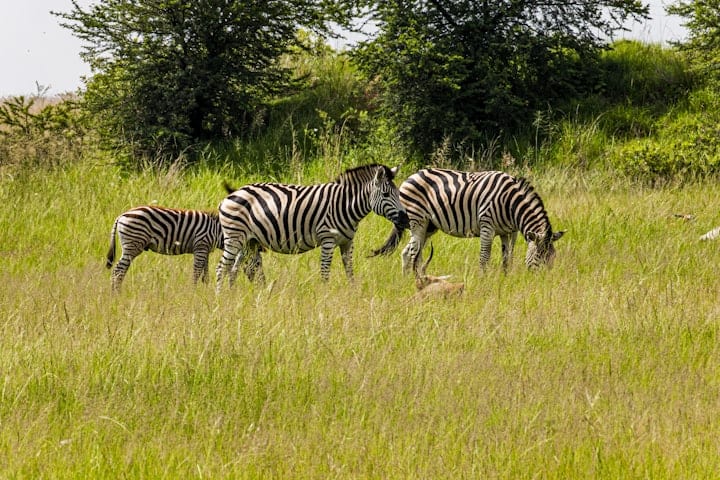Wildlife Conservation in Africa
Efforts to protect and conserve Africa's rich biodiversity, including anti-poaching initiatives and sustainable tourism practices.


Wildlife conservation in Africa is a vital endeavor to protect the continent's incredible biodiversity. Here are some efforts being made to conserve Africa's wildlife:
Wildlife conservation in Africa is a collective effort between governments, individuals, and organizations to protect and conserve the continent's rich biodiversity. The government plays a crucial role in establishing and enforcing laws and policies that protect wildlife and their habitats. For instance, the African Elephant Conservation Act and the Endangered Species Act are laws that prohibit the poaching and trade of endangered species.
Governments also establish national parks and wildlife reserves, which provide a safe habitat for wildlife to thrive. Additionally, they collaborate with international organizations, such as the International Union for Conservation of Nature (IUCN), to receive funding and expertise to support conservation efforts.
Individuals and organizations also play a vital role in wildlife conservation in Africa. Many organizations, such as the World Wildlife Fund (WWF) and the Wildlife Conservation Society (WCS), work tirelessly to protect wildlife and their habitats. These organizations conduct research, monitor wildlife populations, and engage with local communities to promote conservation efforts.
Individuals can also make a difference by supporting conservation efforts through donations, volunteering, and spreading awareness about the importance of wildlife conservation. Many tourists who visit Africa also contribute to conservation efforts by supporting eco-tourism, which promotes responsible wildlife viewing and supports local communities.
In addition, local communities are also taking ownership of conservation efforts. Many communities have established their own conservation initiatives, such as community-based tourism and wildlife monitoring programs. These initiatives not only provide income for the communities but also promote a sense of ownership and responsibility for wildlife conservation. Other ways and effort are;
Anti-Poaching Initiatives:
- Ranger patrols and monitoring programs to detect and prevent poaching
- Collaboration with local communities to report poaching activities
- Use of technology like drones, camera traps, and GPS tracking to monitor wildlife
- Support for anti-poaching laws and policies
- Sustainable Tourism Practices:
- Eco-tourism initiatives that promote responsible wildlife viewing
- Community-based tourism that benefits local communities
- Support for conservation-friendly accommodations and tour operators
- Education and awareness programs for tourists on wildlife conservation
Other Conservation Efforts:
- Habitat protection and restoration
- Research and monitoring programs
- Human-wildlife conflict mitigation
- Community engagement and education
- Collaboration with international organizations
Success Stories:
- Increase in elephant populations in some African countries
- Recovery of mountain gorilla populations
- Establishment of protected areas and national parks
- Community-led conservation initiatives
Challenges:
- Poaching and illegal wildlife trade
- Habitat loss and fragmentation
- Human-wildlife conflict
- Limited resources and funding
- Corruption and lack of political will
Future Directions:
- Strengthening anti-poaching laws and enforcement
- Increasing community engagement and benefits
- Promoting sustainable tourism practices
- Enhancing international collaboration and support
- Addressing human-wildlife conflict and habitat loss
Examples of successful conservation efforts in Africa include the recovery of the mountain gorilla population in Rwanda and the reintroduction of the black rhino in Kenya. These efforts demonstrate the power of collaboration between governments, individuals, and organizations in protecting Africa's rich biodiversity.
In conclusion, wildlife conservation in Africa is a collective effort that requires the participation of governments, individuals, and organizations . The government, individuals, and organizations need to join forces together to prevent the loss of this beautiful creations. While there are still many challenges to overcome, the progress made so far is a testament to the power of collaboration and dedication to protecting Africa's incredible wildlife heritage.
By supporting conservation efforts and making sustainable choices, we can help protect Africa's incredible wildlife heritage for future generations.
About the Creator
Enjoyed the story? Support the Creator.
Subscribe for free to receive all their stories in your feed. You could also pledge your support or give them a one-off tip, letting them know you appreciate their work.





Comments
There are no comments for this story
Be the first to respond and start the conversation.